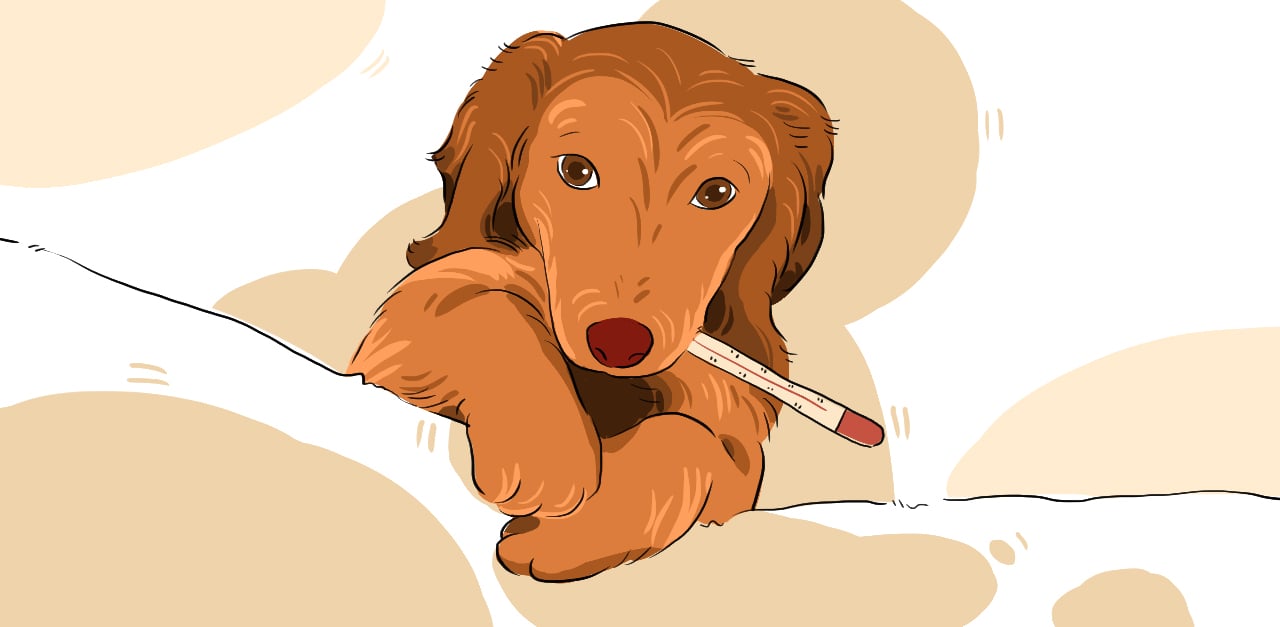
For dog owners, there's nothing worse than having a sick puppy. And due to the fact that your canine companion lacks the communication skills to ask you to make some chicken soup, it’s up to you to take the lead and look for signs of illness. That way, you can appropriately address any issues as soon as possible and start your puppy on the road to recovery.
Unfortunately, there are plenty of ailments that can affect puppies. It might be that they have contracted worms, or maybe they’ve picked up fleas. Sometimes a specific part of their body is bothering them, such as their mouth when they are experiencing teething or their paw if they crack, tear, or break a nail. And while some dogs love going for rides in the car, others, unfortunately, experience carsickness.
However, there are other, more serious ailments that might be affecting your beloved animal. Fortunately, if you know the signs and symptoms to keep an eye out for, you can help your puppy stay healthy.
There are also ways to prevent and treat illnesses and afflictions that every puppy owner should know. Some of these prevention and treatment methods involve vet visits and medications, while others involve simple home remedies.
Handling a dog who’s not feeling in tip-top shape — especially a young pup — can be overwhelming, not to mention heartbreaking. But after giving yourself and your pet a gentle hug, read on to find out what you need to know about dealing with a sick puppy.
Signs and Symptoms of Puppy Sickness
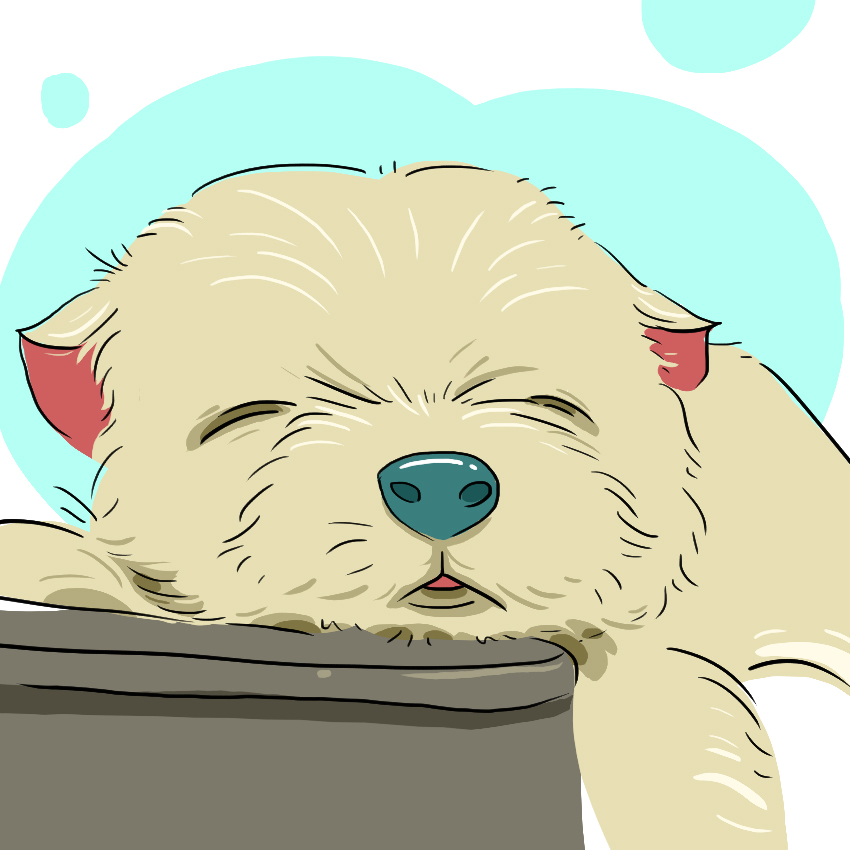
Puppies can’t exactly ask their humans to feel their foreheads to see if they're sick — although that would be amazing. Instead, they rely on us to notice when they are unwell. And various illnesses produce symptoms and signs that are fairly easy to pick up on:
- If your puppy has bad breath or is drooling a lot, that could be a sign of dental problems, like a chipped or decaying tooth. Or an object might be stuck in your puppy’s mouth, like a bone or piece of wood.
- Excessive drinking and urinating or a change in appetite resulting in either weight gain or loss could be a warning that your dog is suffering from intestinal or organ problems.
- Lumps on your dog’s skin can be a sign of something serious like cancer and should be dealt with immediately by your vet.
- A dog acting lethargic and showing no interest in daily activities could be showing symptoms of a wide range of health issues, and, again, you should consult a professional.
- Your dog might even display human flu-like symptoms such as fever, runny nose, and a dry hacking cough.
Look for Any Possible Causes
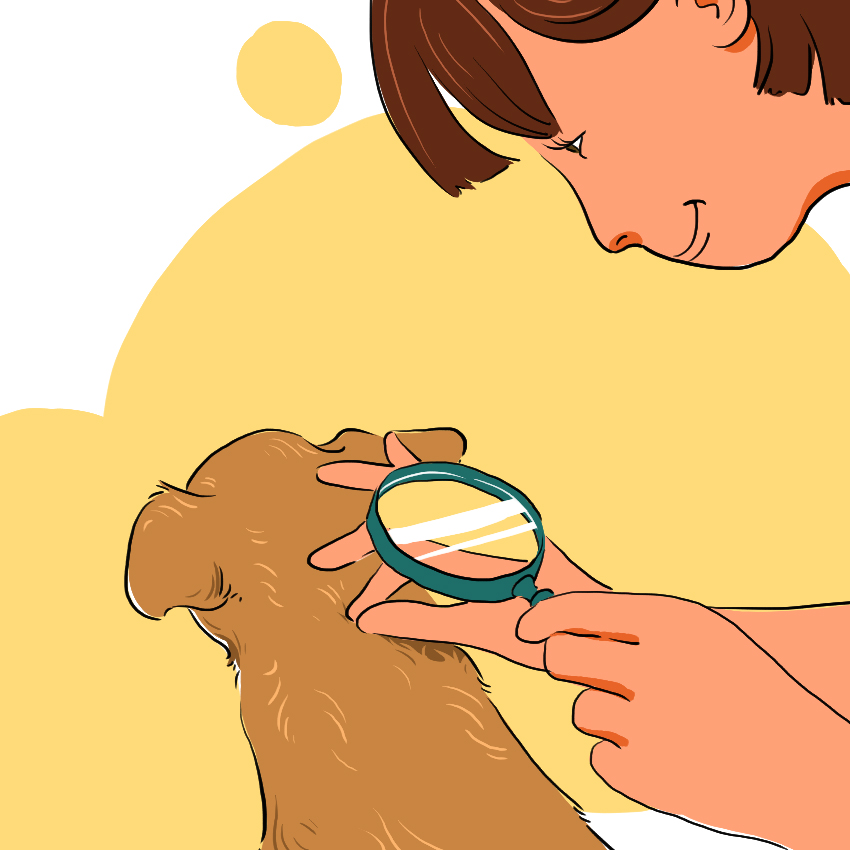
There are a number of possible reasons why your puppy is sick — infection, injury, or even ingestion — and the kind of symptoms your puppy is displaying can help you figure out what might be wrong. Consider these circumstances:
- A dirty eating area can create a home for germs and bacteria that can make your puppy sick, so be sure to check out the condition of your pet’s food and water bowls to see if they might be a problem.
- Dogs can feel ill after eating dead animals or contaminated feces, so look around to see if your pup has been sniffing or gobbling up anything either around your yard or while out on walks.
- Your puppy can pick up illnesses by interacting with sick and contagious dogs, so if your pup has recently played with a canine friend, you might want to ask if the other dog has come down with anything.
- Infected mosquito bites and tick bites can cause worms.
- If your puppy is a roll-in-the-mud kind of adventurer, then that can cause irritated skin.
Intestinal Parasites
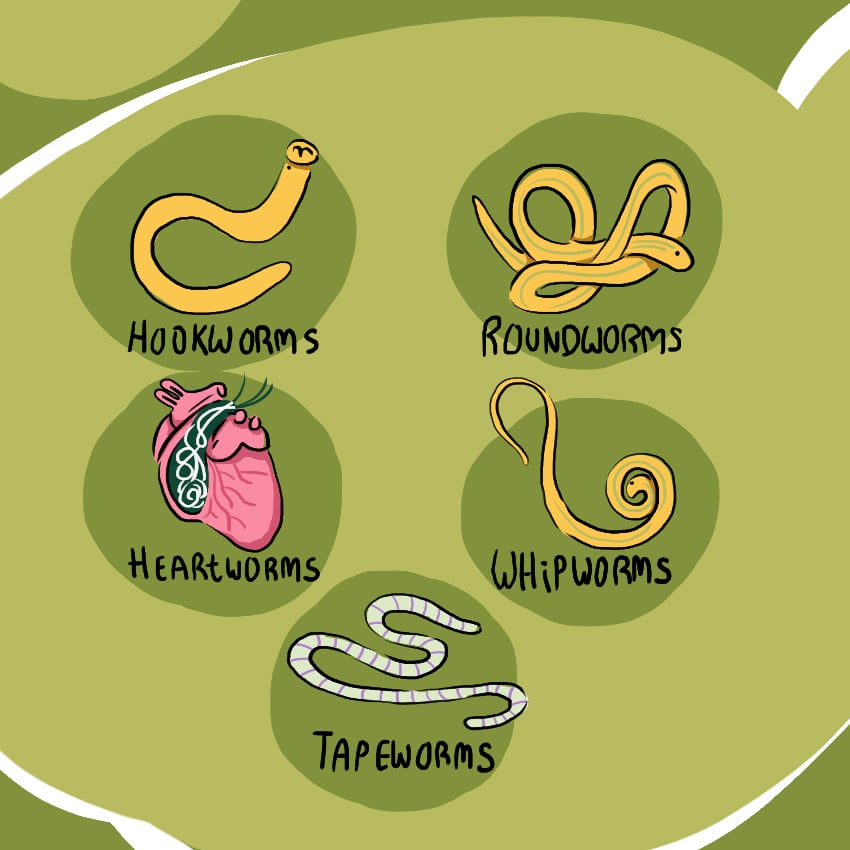
Puppy worms or intestinal parasites, like heartworms and ringworms, are unfortunately common among canines. Your pup can get worms a few ways, including eating contaminated feces or animals or getting bit by an infected flea. Infected mama dogs can also pass worms to their puppies in the womb.
If your puppy is throwing up a lot, has diarrhea, or is losing weight even while still eating regularly, then it might be a sign of intestinal parasites.
If your puppy does indeed have worms, there are some over-the-counter remedies available, or you can ask your veterinarian for suggestions.
Parvovirus
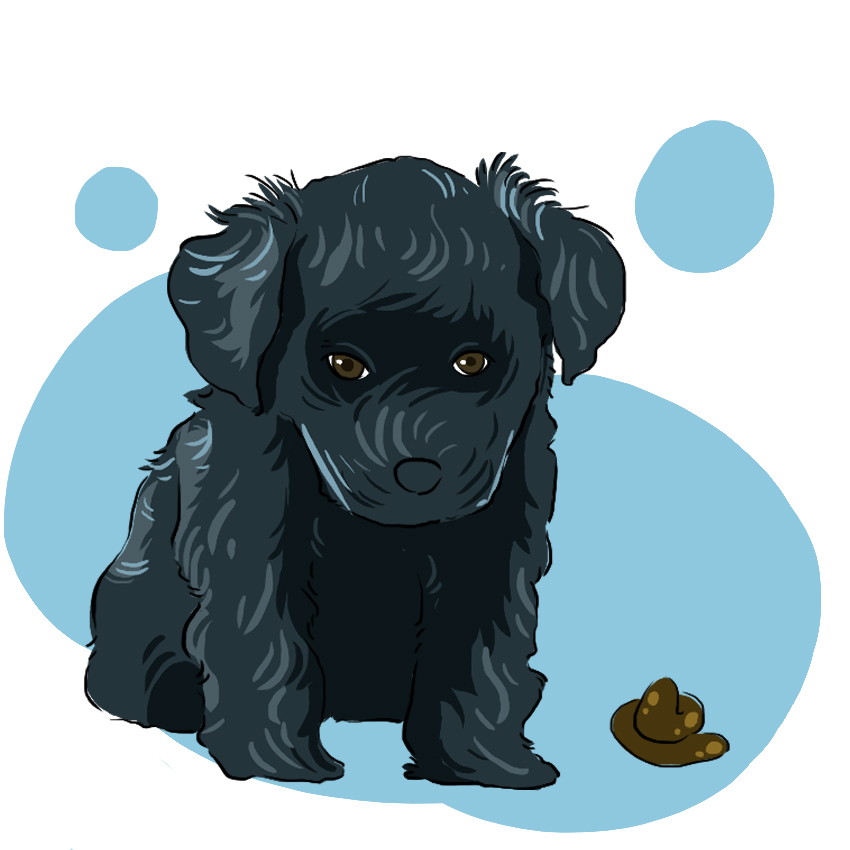
Parvovirus is another nasty illness that puppies can pick up by eating contaminated feces, which is why young dogs should receive vaccinations to protect them from the dangerous illness.
The virus often leads to bloody diarrhea, vomiting, fever, and a lack of energy. It is very contagious and potentially fatal. If your dog does have parvovirus, he should be treated by your vet right away.
Kennel Cough
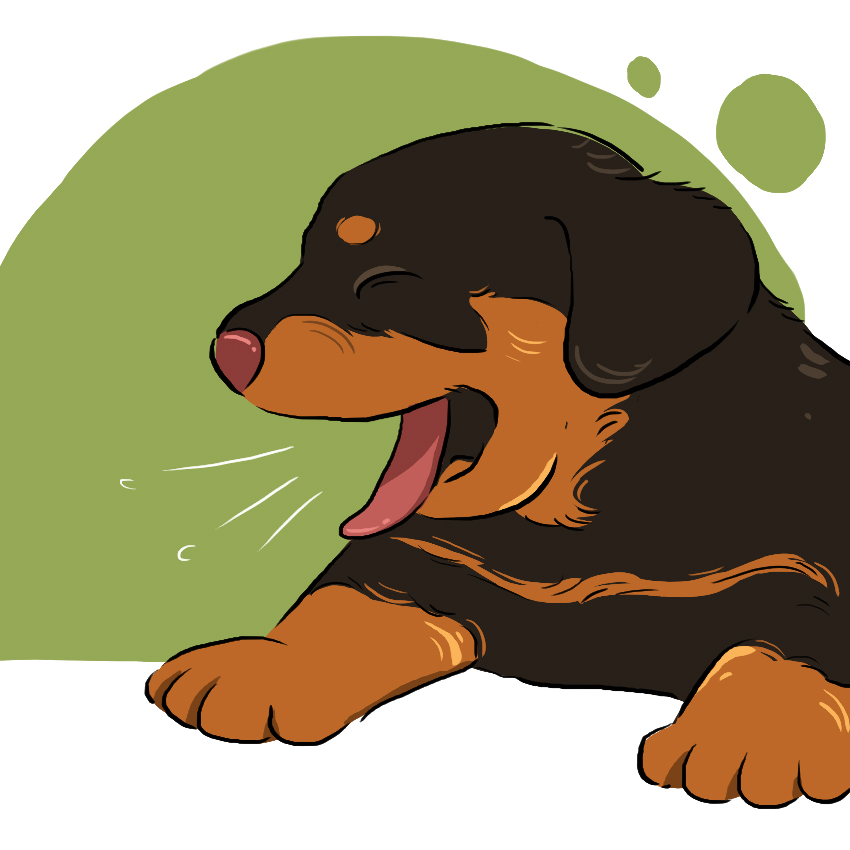
Kennel cough — or canine infectious tracheobronchitis — is a contagious respiratory disease that your puppy can catch from being around other dogs, such as in a kennel or at a dog park. If your dog has kennel cough, you’ll notice symptoms like a “honking” type of cough, a runny nose, and sneezing.
Kennel cough can be treated with antibiotics prescribed by your vet, as well as plenty of rest for your puppy. You should also keep your pup away from other dogs while he's sick so that he doesn’t pass it on.
Canine Diabetes
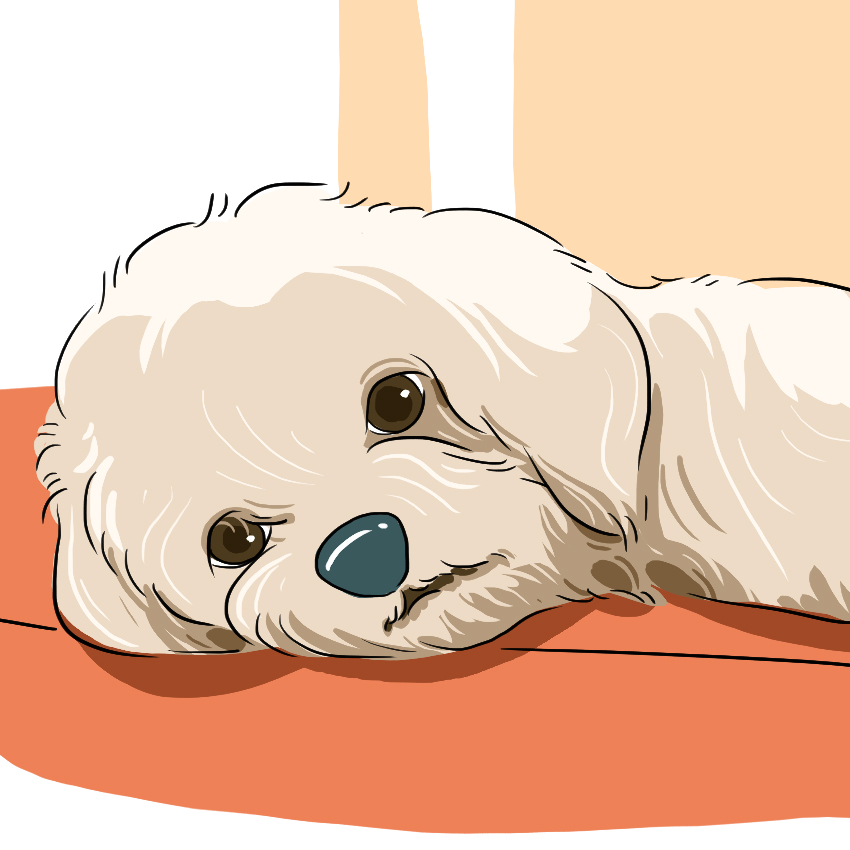
Just like humans, dogs can develop “sugar diabetes,” which cannot be cured, but with commitment from you, it can be successfully managed. According to the American Kennel Club, canines can develop either “insulin-resistance diabetes… when the pancreas is producing some insulin, but the dog’s body isn’t utilizing the insulin as it should” or “insulin-deficiency diabetes… when the dog’s body isn’t producing enough insulin. This happens when the pancreas is damaged or otherwise not functioning properly.” Symptoms include extreme thirst, increased urination, and lack of energy.
Your vet can tell you exactly how to manage your dog’s canine diabetes with a prescribed diet plan, plenty of exercise, and possibly insulin shots.
Can Humans Make Dogs Sick?
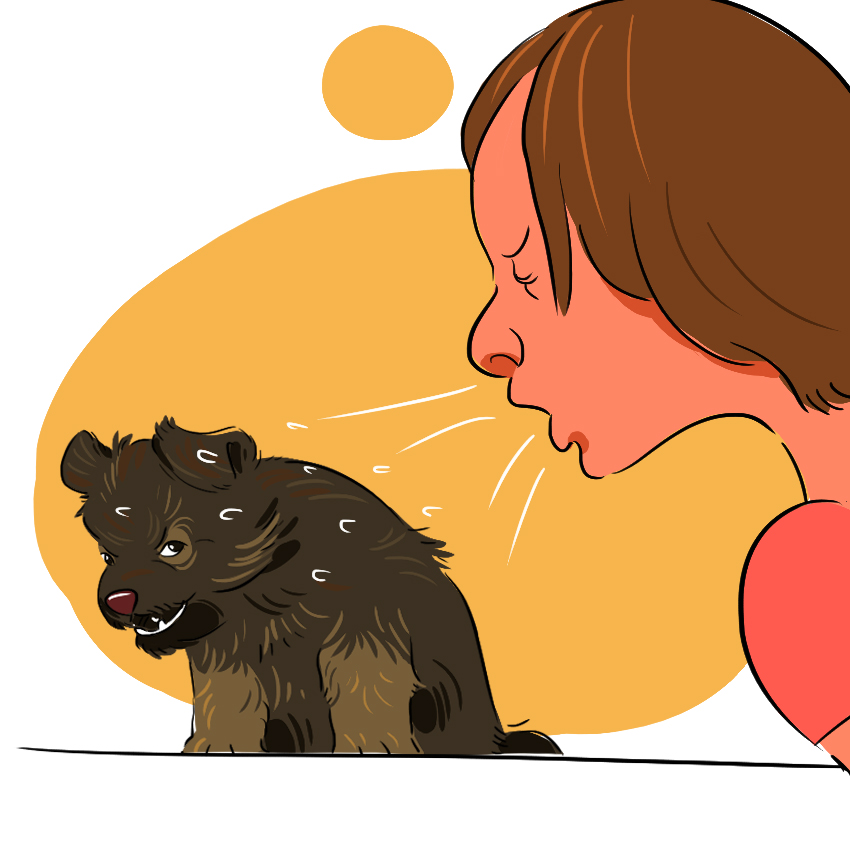
It seems like a weird question, but the answer is: It's unlikely, but possible. For instance, your dog can catch a canine version of the common cold with symptoms like a fever, runny nose, coughing, and acting lethargic.
On the other hand, there is a very slim chance that dogs will contract the mumps, salmonella, or tuberculosis from humans. However, if you have any of these illnesses, it would be wise to keep your puppy away from you to prevent any chance of spreading it to him.
Also, humans need to be wary of some diseases that can be caught from infected dogs. Rabies, ringworm, and salmonella are among sicknesses that have been known to pass from dogs to humans.
Prevention Your Vet Can Provide
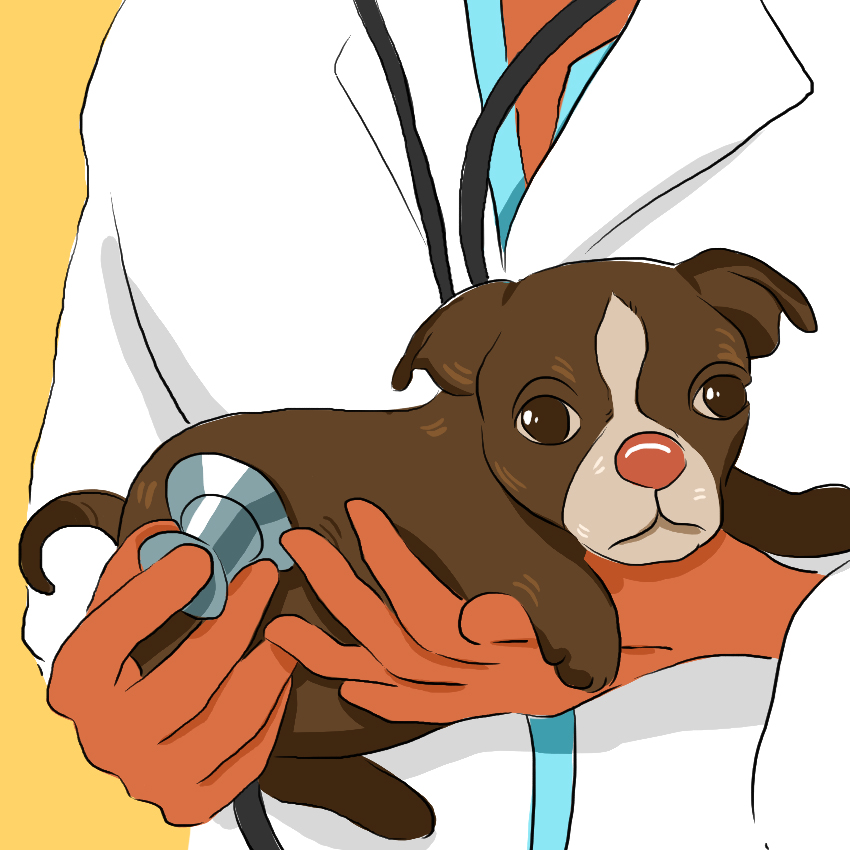
Taking your puppy to the vet for regular checkups is one of the best things you can do for his overall well-being. Your vet can provide you with information for proper nutrition, grooming methods, exercise routines, and vaccinations that will help your puppy live a healthy life.
Your vet can also screen your pup for signs of potential disease. Catching harmful health issues early on can increase the chances of success when it comes to treatment and can help you avoid hefty medical expenses.
Preventative Action You Can Take on Your Own
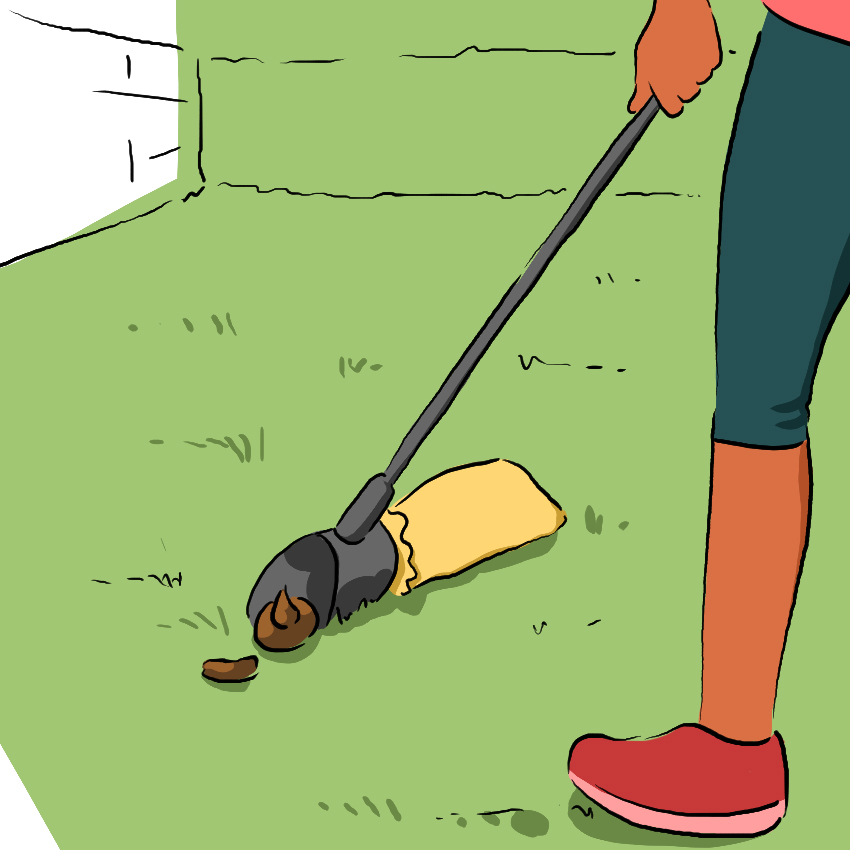
In addition to taking your puppy for regular visits to the vet, there are some things that you can do to prevent your furry friend from getting sick:
- A balanced diet can help ensure that your dog is getting all of the necessary nutrients to stay healthy.
- Exercise can help your pup’s muscles, lungs, and heart stay strong.
- Grooming your dog can help keep his coat in pristine condition while giving you a chance to look for any abnormalities or irritations on his skin.
- Providing your pup with lots of water will help him remain properly hydrated, keep him cool, and assist with digestion.
When To Go to the Vet
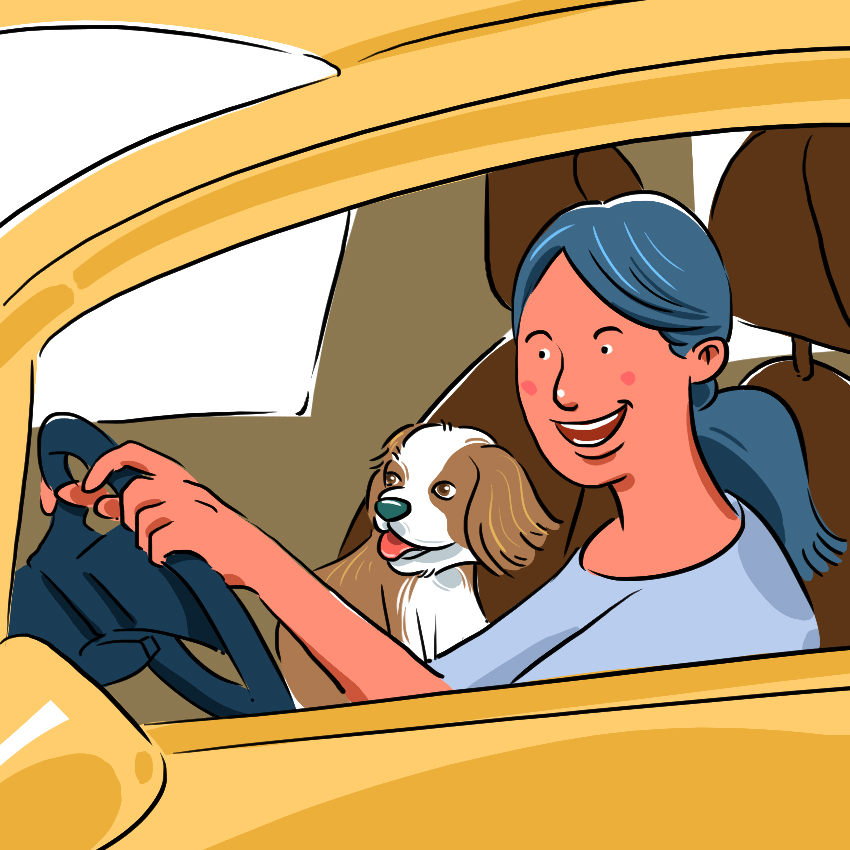
Regular checkups and screenings should become a routine with your dog to ensure that you’re keeping on top of your pup’s health.
If you’re in between vet visits and your dog is showing symptoms of illness that are worrisome (such as excessive vomiting, diarrhea, weight loss, weight gain, refusal to eat, or dizziness) or is acting in a way that is drastically different from his normal behavior, then don’t hesitate to contact your vet to make sure that everything is OK with your pup.
Home Remedies
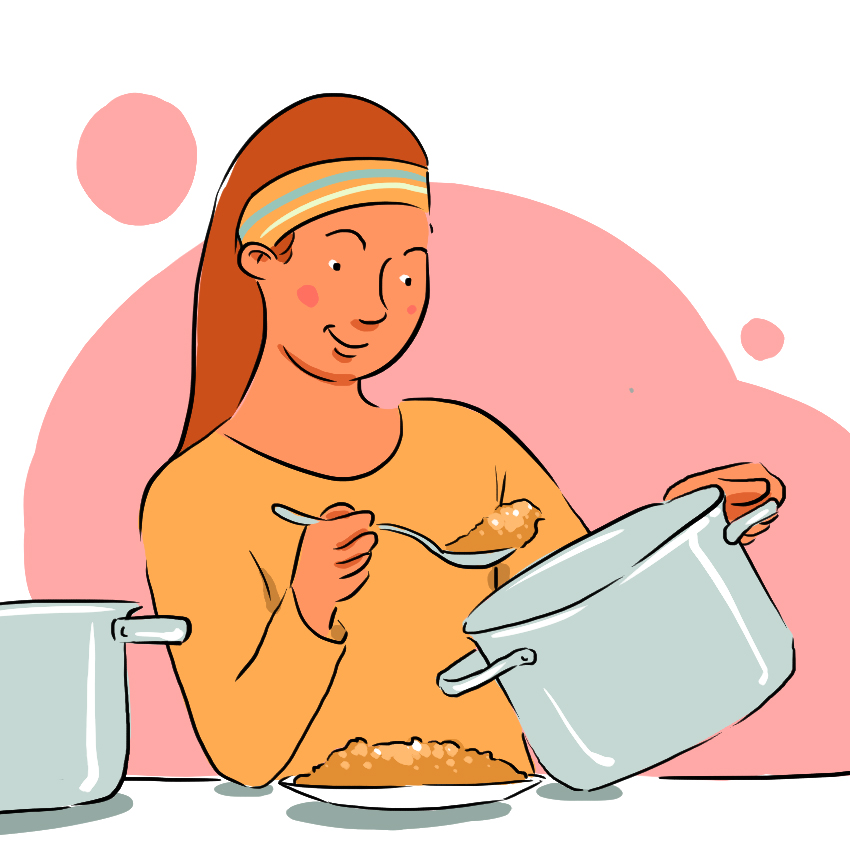
As well as regular visits to your vet and a balanced diet, there are some home remedies and natural options that can benefit your puppy’s health:
- Canine-specific over-the-counter probiotics can help with your puppy’s gut health. Just make sure it has the approval of the National Animal Supplement Council (NASC) to know it’s safe for your canine companion (and stay away from yogurt, which can upset your pup’s stomach).
- Oatmeal and chamomile tea can help soothe itchy or irritated skin, and vitamin e oil can help moisturize your puppy’s skin as well as fight some of the harmful effects of UV light.
- An Epsom salt soak can clean any wounds and help your dog with achy muscles or sore feet.
- Lavender oil can be used to keep your puppy relaxed either at home or in the car. Use as a spray diluted with water, spritzing it in the air but not directly on your pup.
When trying home remedies, it is important to know if your puppy has any allergies or health concerns that might not gel with certain ingredients, so make sure to ask your vet before starting any DIY treatments.
What You Should Feed Puppies When They’re Sick
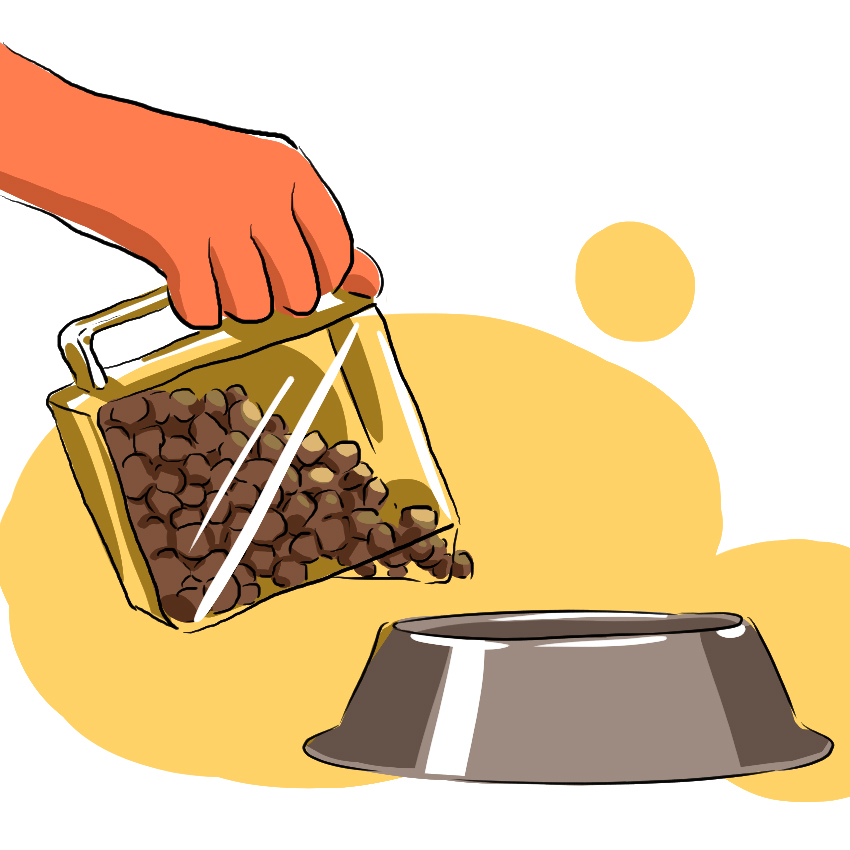
It’s not unusual for puppies to lose their appetite when they’re not feeling well, but there are a few ways to get them in the mood for food that will, in turn, help them keep up their energy and fight off whatever is making them ill.
If your dog is a kibble eater, then switching to a food that has more of an odor might help trigger hunger. Try temporarily switching to wet dog food, or add some cooked rice to your dog's kibble to make it a little more appealing.
When your dog is sick, give smaller meals so you don’t upset his stomach, and make sure that fresh water is available to keep your pup hydrated and to help his digestion. If your puppy is vomiting or has diarrhea, then stick to bland foods like rice, boiled chicken, or vegetables.
Foods That Will Make Puppies Sick
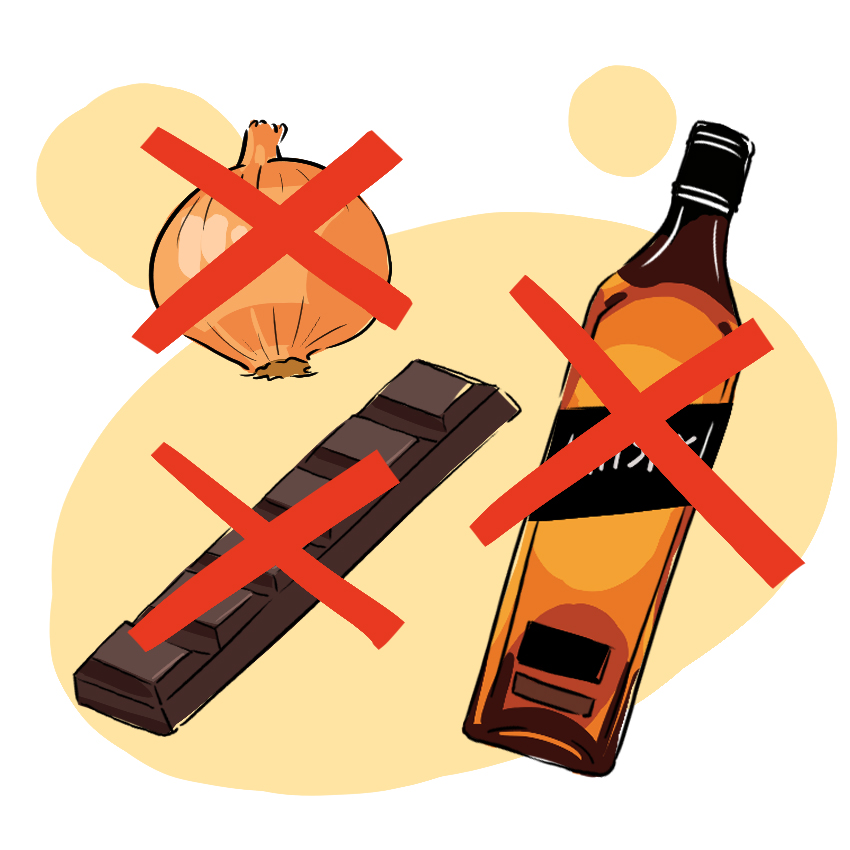
If your puppy is getting ill suddenly or regularly, the problem might be something you’ve fed him. Certain foods can irritate your dog's stomach, which can then cause vomiting, diarrhea, and even organ failure in severe cases.
Chocolate and caffeine both act as a toxic stimulant for dogs, while onions and garlic can lead to stomach irritation (and even cause damage to their red blood cells, which can lead to anemia). Grapes, raisins, and moldy food can be extremely toxic to dogs and can cause kidney failure.
Make sure to keep harmful foods away from your curious pup, and if you suspect that he's eaten something poisonous, contact your veterinarian or animal poison control immediately.
Caring for Your Sick Puppy
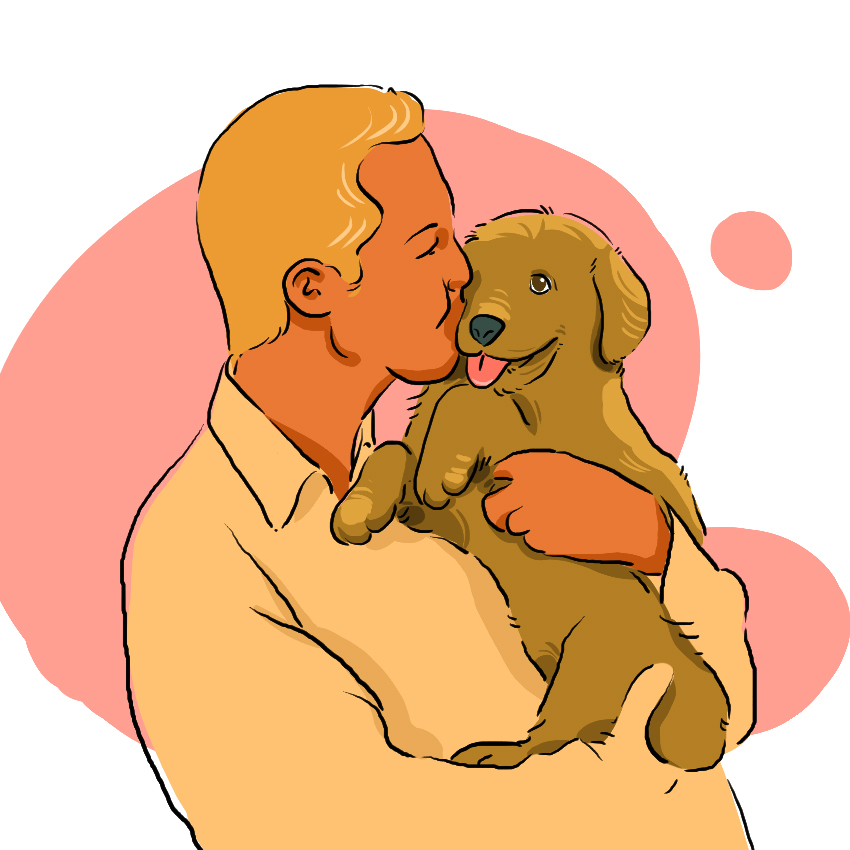
If it’s not a serious enough issue that you feel like you have to go to the vet, or if you've already seen your vet and your puppy is on the mend, then there are some ways you can indulge in a little extra TLC for your sick pup:
- If your pup is running a fever, turn on a fan or provide clean, cool water.
- If puppy is shivering and cold, get a nice warm blanket and set up a comfortable place to rest.
- If your dog is not eating, slowly introduce food that is bland and easy on the stomach.
- Use a happy and reassuring voice to help your puppy feel calm and loved while sick, letting pup know that you are there to care for him.
Most of all, provide your puppy with the kind of care you would like to receive when you’re sick, and hopefully he’ll be feeling better soon enough.




